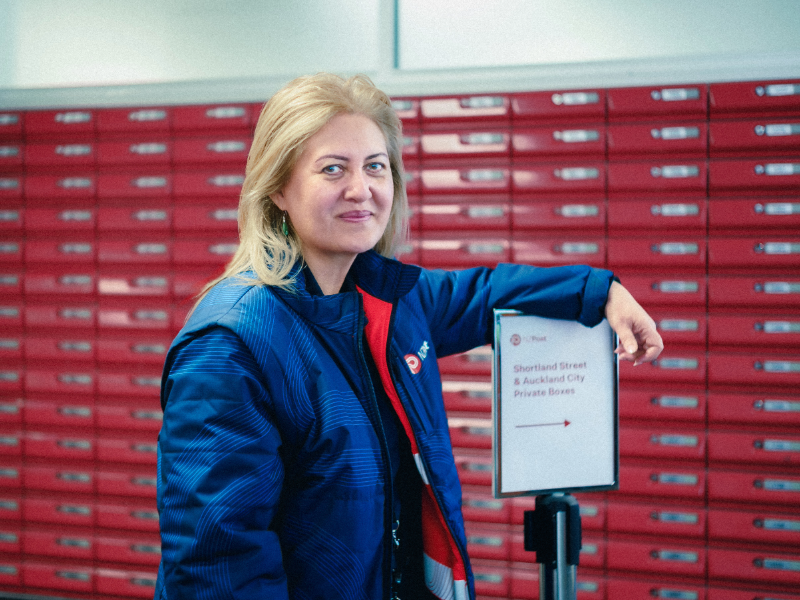Mischelle Moriarty and 10 years of E tū
Q&A
This October, E tū will turn 10 years old! To reflect on this milestone, we spoke with E tū North Island Vice President Mischelle Moriarty, about her history as an E tū activist and what she has seen along the way.

How did you first get involved with the union?
I had heard about unions from my Dad and Grandfather since I was little. So when I started at Post in 1987, I was working as a typist to the postmaster and I joined the Communication & Energy Workers Union. My Dad called up one of his mates at the EPMU union and said, “Go sign my girl up” before that union folded. My friend nominated me to be the delegate, saying “you’re it”. I thought, oh yeah, I’ll give it a go.
And how has your career with NZ Post unfolded?
There’s been a lot of change. I started in ’87 at St Lukes, and since then I’ve been through so many restructures. I’ve had about seven different roles over that time, because every time something is disestablished, you move to whatever’s next. After my typist role was disestablished, I became a retail officer on the counter.
Then came KiwiBank – we helped launch that, so I became a customer service rep opening bank accounts. I then moved into management and ran the St Lukes branch. After 20 years at St Lukes I was asked to do project management work at our head office. After a year there I then managed the Newmarket KiwiBank for 12 years, also helping with mortgages. Our roles were disestablished and for the last five years I’ve been the Team Leader at the Ponsonby Post Shop.
I’ve been part of every major change Post has been through, including when KiwiBank separated from NZ Post. Most recently my Ponsonby Post shop has closed so I have just started a new Customer Service Coordinator role at the Hardinge Street Post Shop. So, it’s definitely been a journey.
What are the biggest changes you’ve seen?
For NZ Post it’s been restructure after restructure. Each time, we are losing long-serving members with huge knowledge and experience. We had people with 38, 40, even 42 years of service walking out the door. And when you lose those NZ Post delegates, you lose leadership too. You lose that history.
For E tū, one of the biggest changes was when E tū was formed. I remember a trip to Wellington back in the EPMU days, looking at all the old National Executive photos. There were only a few women, in the last two most recent photos and I only saw one Māori woman. But at one of the first E tū conferences, I looked out at the crowd and thought: I see myself. Māori, women, people from all walks of life. That stuck with me. That’s why I believe in E tū. It’s inclusive, it’s a forward-thinking union.
What keeps you going?
I’ve been part of the national bargaining team for Post for around 20 years now, and I sit on our Communication Industry Council. I’ve stayed because I know being a part of our union, we can make a difference.
What drives me is helping others, and helping them see that they can do this too. I didn’t go to university. I went to a small area school up North. But I’ve been on the National Executive since E tū started. You don’t need a degree. You need heart, and the will to stand up for others.
I’m always encouraging people to step up, that they can do it as they have their work and life experience. More women, more Māori, more Pacific delegates, I’m not ashamed to say it. We need to be represented at the table.
What do you hope for the future of the union?
I want us to keep growing. We’ve got to get more young people involved. I had been trying to get my daughter to participate in our union and I believe she saw the value of being a member after needing help with an issue at work and seeing the union in action at a rally.
The future of the union is in our kids, and in our mokopuna. I hope they will be a part of E tū one day, standing up for what’s right, standing up for justice, and standing up for others. That’s the legacy we need.
